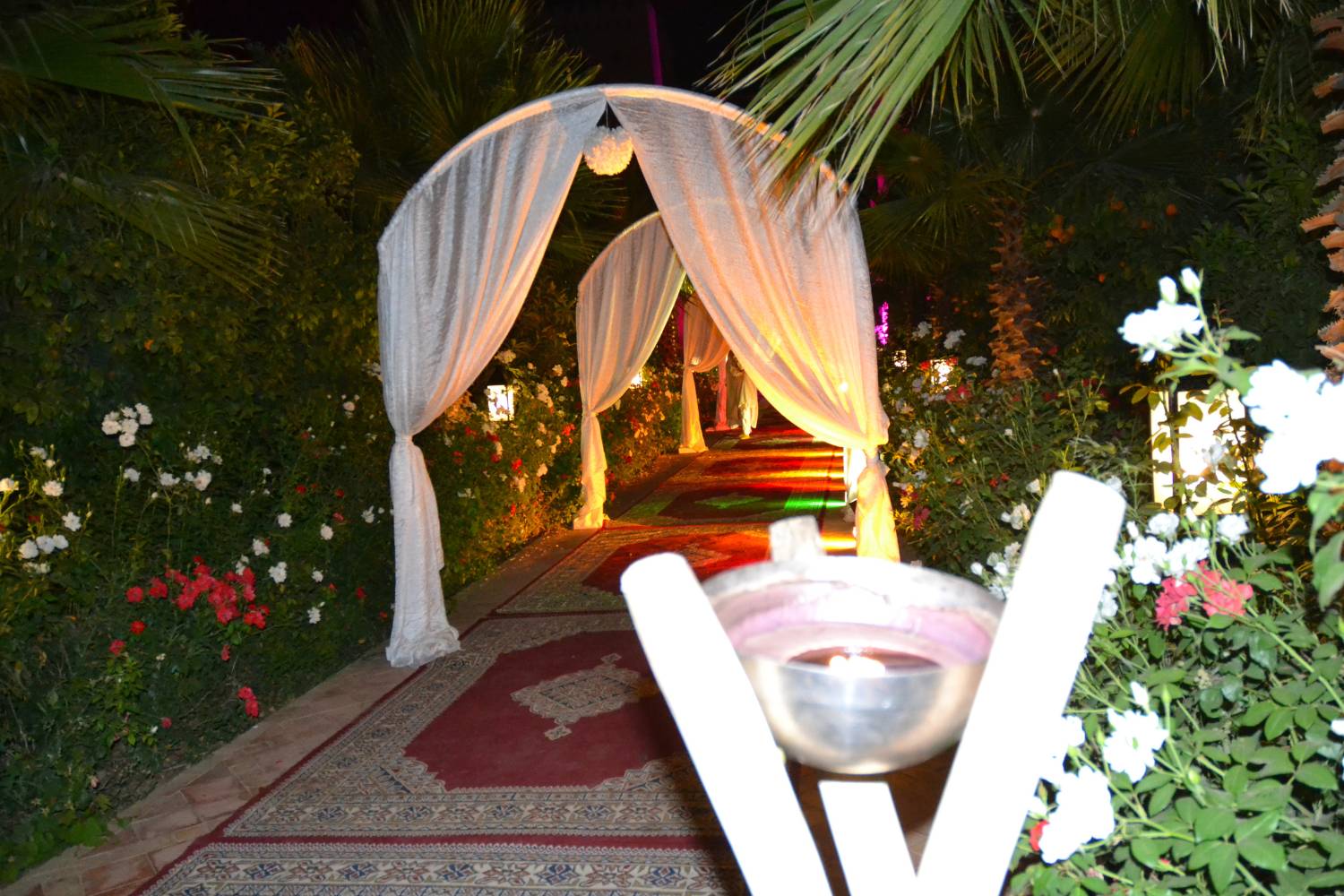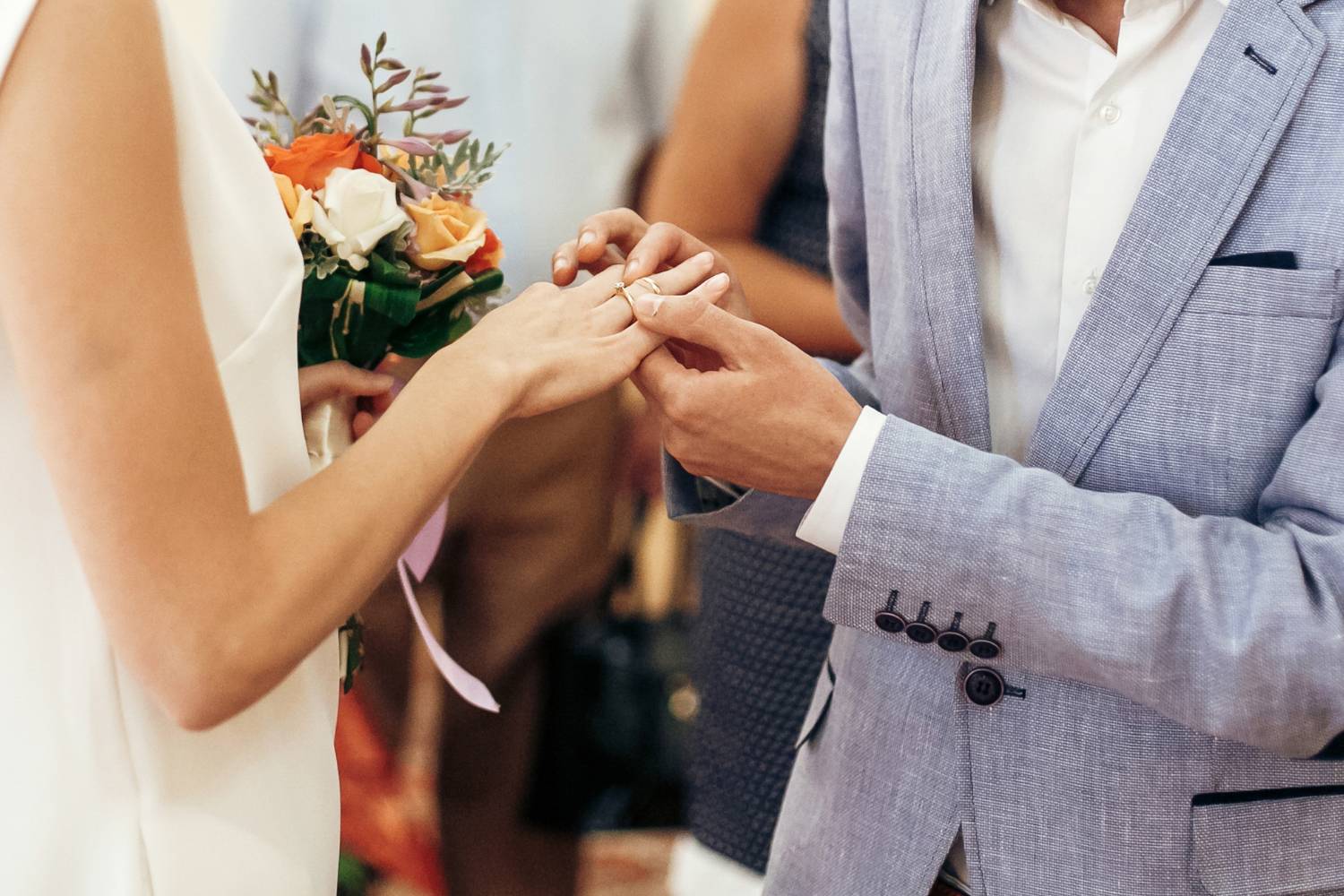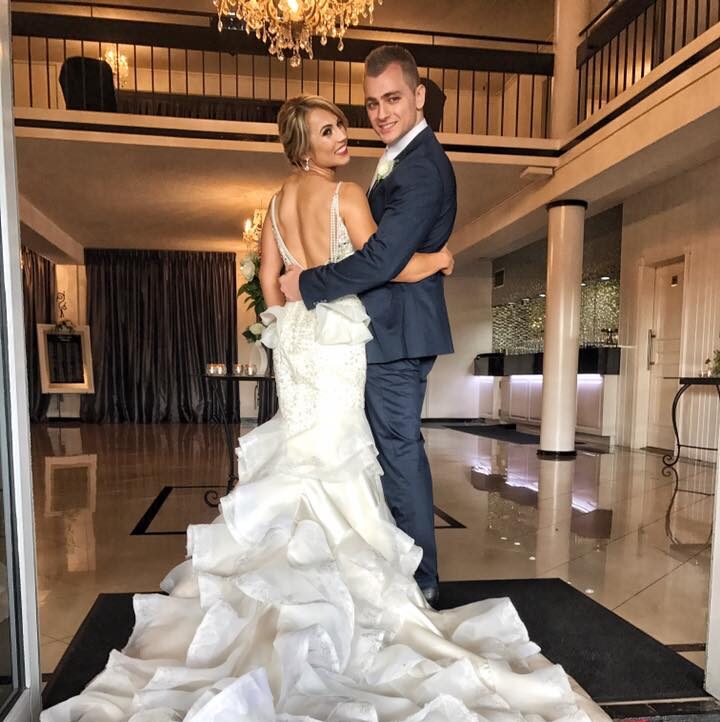Weddings are a beautiful celebration of love, and incorporating cultural traditions can make the day even more special. As modern weddings evolve, couples seek ways to honour their heritage while embracing contemporary trends.
This guide explores how to thoughtfully weave cultural customs into your wedding day, creating a unique experience reflecting your personal and cultural identity.
Let’s Get Straight To The Point
Incorporating cultural traditions into your wedding day allows you to honour both your heritage and that of your partner. It’s not just about beautiful customs; it’s about weaving meaningful elements into your celebration to create an experience that is truly reflective of who you are as a couple.
Whether blending traditions, embracing cultural attire, or incorporating meaningful rituals, your wedding can be a unique and authentic celebration that showcases your love story and family values. The goal is to create a celebration that is not only memorable but deeply meaningful for both you and your guests.
Understanding Cultural Significance
Researching and having open conversations with family members allows you to uncover the deeper meanings behind these customs. This ensures that each element reflects your heritage and your partner’s rather than simply choosing customs for their aesthetic appeal.
Before introducing cultural elements into your celebration, it’s essential to grasp their symbolic meaning and how they represent values and beliefs within your community.
Embracing Cultural Stories and Values
Each tradition, colour, ritual, and dance carries a story and a message, often linked to blessings for the bride and groom’s future, prosperity, or joy. For example, in some cultures, a particular colour may symbolise luck or fertility, while a specific dance might be performed to invite blessings.
By embracing these elements, rather than just their surface beauty, you honour the narrative and values embedded in them, bringing an extra layer of meaning to your celebration.
Building Connections in Intercultural Relationships
In intercultural relationships, understanding and honouring each other’s cultural heritage not only enriches the wedding but strengthens the couple’s bond. Engaging in family discussions, joint research, and even consulting cultural experts about your respective traditions fosters respect and mutual understanding.
This process allows both partners to share their cultural stories, making the wedding a truly collective celebration. By embracing both cultures, you’re blending traditions and laying a foundation for a future that values and celebrates diversity and inclusion.
Creating an Inclusive and Educational Experience for Guests
A wedding that thoughtfully incorporates cultural elements provides guests with an opportunity to learn and appreciate new traditions. When the rituals are performed with respect and understanding, they become more than just moments in a ceremony—they become an educational experience that invites everyone to celebrate the diversity of love and unity.
By sharing the cultural significance of each element with your guests, you create a deeper connection with them and enrich the overall experience. This approach elevates your wedding from a simple celebration to a memorable event that fosters appreciation for the diversity of cultures and the universal theme of love.
The intimacy of micro weddings, where personal connections are heightened, can further amplify this educational and inclusive experience.
Incorporating Cultural Elements into the Wedding
Thoughtful integration of cultural decor, music, dance, and spiritual elements can bring depth to the ceremony and wedding reception, making the day uniquely yours. These elements not only reflect your personal identity but also invite guests to engage with your culture in an authentic way.
Traditional Decor Elements
Specific colours, textiles, and motifs can add authenticity and transform your venue into a stunning reflection of your heritage. By thoughtfully weaving these elements into your design, you create an immersive experience that transports guests into a visually rich celebration of your cultural background.
Cultural Music and Dance
Hiring musicians or DJs who specialise in traditional music is a great way to bring authenticity to your celebration. Music and dance serve not only to entertain but to educate, bridging cultural gaps and creating a shared experience of joy and unity.
Incorporating Cultural Blessings and Prayers into the Wedding Ceremony
Whether it’s a Chinese tea ceremony or the symbolic Jewish glass breaking, these spiritual elements infuse your ceremony with meaning and reverence. Cultural prayers and blessings not only reflect the couple’s faith and values but also serve to honour family traditions and the cultural community.
These moments of reflection can strengthen the spiritual connection between the couple, their families, and the larger cultural context, making the ceremony not just a legal union but a sacred and profound event.
Cultural Attire and Accessories
Cultural attire is a powerful way to celebrate and honour your heritage on your wedding day. Whether you choose to wear traditional garments or incorporate cultural elements into your wedding look, it’s an opportunity to reflect your background and personal identity while adding depth to the celebration.
The attire you choose can also tell a story and connect you with generations before you, making it a meaningful and beautiful part of your wedding.
National Wedding Attire
Each piece of traditional wedding attire tells a unique story, whether it’s the intricate embroidery of a sari or the bold colours of a kilt. For the bride and groom’s blending cultures, you might choose to wear one cultural garment for the ceremony and another for the reception, reflecting both identities.
Alternatively, incorporating symbolic colours, patterns, and motifs that resonate with your culture into a modern wedding dress or suit can also be a subtle yet powerful nod to your heritage, creating a look that is both contemporary and deeply rooted in tradition.
Traditional Wedding Favors
Traditional wedding favours are a thoughtful way to share your cultural heritage with your guests. By offering favours that have personal and cultural significance, you create a meaningful experience that reflects your values and beliefs.
Small items like candles, trinkets, or sweets can be more than just tokens of appreciation—they can represent aspects of your culture, such as prosperity, luck, or love. For example, giving guests small boxes of Chinese “Red Bean Paste Pastries” or offering Egyptian “Almond Sweets” can introduce them to your traditions.
To enhance the gesture, include a note explaining the cultural significance of the favour, allowing guests to better understand its meaning and the cultural importance behind the item.
Cultural Symbols and Rituals
Incorporating cultural symbols and rituals into your wedding design adds an extra layer of meaning and spiritual depth to the celebration. Many cultures have unique symbols or rituals associated with weddings that are rich in history and significance.
For example, in Chinese weddings, the “Double Happiness” symbol is often used in decorations to represent love and good fortune. A traditional Chinese wedding tea ceremony, where the bride and groom serve tea to their parents and elders, is also a significant ritual. This act symbolises respect, gratitude, and the honouring of family while also marking the couple’s transition into married life.
In Hindu weddings, the “Mangalsutra” necklace is an important symbol of the bond between the couple, symbolising protection, prosperity, and marital bliss. Another significant ritual is the “Saat Phere,” where the couple circles a sacred fire seven times while reciting vows, symbolising their commitment to each other and the values they share.
These cultural elements help to deepen the cultural experience for you, your partner, and your guests, turning the wedding into a celebration not only of love but also of the rich traditions that shape your journey together.
Cultural Celebrations
Cultural celebrations are an enriching way to deepen the meaning of your wedding and create lasting memories for both you and your guests. By integrating food, beverages, games, and activities from various cultural backgrounds, you can create a vibrant and dynamic celebration that honours your heritage while also fostering a spirit of unity and enjoyment.
Fusion in Food and Beverage
Offering traditional dishes from both families’ cultures is an excellent way to introduce guests to new flavours and experiences. For example, if one partner has Italian roots and the other is from India, you could serve both pasta and curry dishes, allowing guests to sample a range of tastes. National drinks, such as Italian limoncello, Mexican tequila, or Japanese sake, can also complement your menu and add a personal touch to your celebration. Creating a fusion menu allows you to blend the best of both worlds, making your wedding feast not just a meal but an exploration of cultural heritage and culinary traditions.
Cultural Wedding Games and Activities
Many cultures have traditional games or activities that are meant to bring joy, laughter, and a sense of community to the festivities. For example, the Jewish hora dance is a lively and festive tradition where guests lift the newlyweds in chairs, celebrating joy and unity.
Planning a Multicultural Wedding
Planning a multicultural wedding involves thoughtfully blending different cultural traditions and customs to create a celebration that honours both partners’ heritages. It’s a chance to showcase the diversity of your backgrounds while creating a meaningful and inclusive experience for you, your partner, and your families.
Educating Your Partner and Their Family
It’s important to have open discussions with your partner and their family to ensure everyone understands and respects the customs being incorporated into your wedding. Multicultural weddings often involve blending traditions from both sides and educating family members about these traditions, which helps prevent misunderstandings and ensures that everyone is on the same page. Explain why certain rituals, attire, or customs are significant and how they will be integrated into the ceremony and reception.
Finding Multicultural Wedding Vendors
Finding the right multicultural wedding vendors is essential to bringing your vision to life. Look for vendors who have experience with diverse cultural weddings or those who self-identify with specific cultural backgrounds.
By choosing vendors who understand your unique cultural needs, such as caterers who can prepare traditional dishes or musicians who specialise in cultural music, you ensure that your wedding accurately reflects both families’ traditions while adding authenticity to your celebration.
Tips for a Successful Multicultural Wedding
Planning a successful multicultural wedding requires careful coordination and clear communication. One of the most important tips is to maintain open dialogue with your partner and their family, ensuring everyone’s cultural traditions are respected and thoughtfully incorporated.
Consider seeking guidance from a wedding planner who specialises in multicultural weddings to navigate the intricacies of blending cultures and be realistic about the budget and time required to accommodate different rituals and customs.
Destination Weddings with a Cultural Twist
The location you select sets the tone for your wedding, and when it aligns with your cultural background, it enhances the entire atmosphere. Whether you opt for a tropical beach, a historic site, or a culturally significant landmark, your venue can serve as a powerful symbol that connects you to your ancestry while offering a unique setting for your wedding.
Location That Reflects Your Heritage
Selecting a location that resonates with your cultural background adds a personal touch and a deeper connection to your wedding ceremony. For example, if you have strong ties to the Mediterranean, a historic seaside town or a villa overlooking the ocean might reflect the beauty and heritage of your culture.
Similarly, couples with Asian roots might choose a serene temple or a picturesque garden to celebrate their union. If your heritage is linked to ancient civilisations, such as Greek or Roman ancestry, a wedding at an archeological site or an ancient monument can add historical significance.
The location not only serves as a backdrop but enhances the cultural ambience, making it a true reflection of your heritage. Choosing a destination wedding that aligns with your roots invites your guests into the heart of your culture, allowing them to experience its beauty and meaning first-hand.
Honoring Your Heritage
By weaving together the traditions, rituals, and symbols from both partners’ backgrounds, you can craft a wedding that reflects who you are and where you come from. This approach not only respects your heritage but also deepens the connection between you, your partner, and your families, making the day truly special.
Centering Your Shared Heritage on Your Wedding Day
Instead of choosing elements for aesthetic appeal alone, the goal is to blend traditions that represent the unique story and shared values of the bride and groom. Whether it’s lighting a unity candle, performing a traditional dance, or integrating culturally significant symbols into the decor, these cultural elements help tell the couple’s story while respecting and celebrating their heritage.
This thoughtful blend of traditions offers a chance to pay homage to family and cultural legacies, creating a wedding that is both personal and deeply rooted in history.
Providing a Culturally-Themed Guest Book
A creative twist on this custom could involve having guests sign a map of their country of ancestry, where they can mark where they are from or where they have travelled from. Another idea is using traditional fabric or a quilt, where each guest can leave a message on a section, symbolising unity and the warmth of family.
In cultures like Chinese, you might incorporate a red envelope or gourd where guests can leave well wishes, as these items have their own cultural significance and are considered symbols of good fortune and blessings. These culturally inspired alternatives not only create a keepsake but also invite guests to participate in a celebration of your heritage, adding a personal and meaningful touch to your wedding day.
Final Tips
Embracing both partners’ cultural heritages allows you to create a celebration that is not only respectful but also a reflection of your unique love story. The following tips will guide you in thoughtfully incorporating traditions and practices into your wedding day, ensuring that the celebration is meaningful and true to both backgrounds.
Don’t be Afraid to Blend Traditions
Blending traditions from different cultural backgrounds is a beautiful way to celebrate your multicultural heritage. Creating a fusion ceremony allows you to honour both your identities and bring together rituals, symbols, and customs that are meaningful to you and your partner.
Whether it’s combining different wedding attire, performing rituals from both cultures or even merging cuisines and music, the key is to thoughtfully weave elements that reflect your love story. Embrace the diversity of your backgrounds and celebrate the unique blend of traditions that make your wedding truly yours.
Including Cultural Ceremony Attendants
Incorporating cultural roles or ceremonial attendants into your wedding can add a deeper sense of connection and community. Many cultures include special family members or close friends who play significant roles in the wedding ceremony, such as pouring ceremonial liquids, presenting gifts, or offering blessings.
These roles are often deeply symbolic and represent the family’s involvement and support in the union.
Incorporating cultural traditions into a modern wedding is a meaningful way to honour your heritage while creating a deeply personal and inclusive celebration. By thoughtfully blending traditions, rituals, attire, music, and cuisine, couples can craft a wedding that reflects both their love story and their cultural roots.
Whether embracing one culture or merging multiple backgrounds, the key is to approach each element with respect and understanding, ensuring that traditions are celebrated authentically.
A multicultural wedding not only strengthens the bond between the couple but also fosters appreciation and connection among guests. Ultimately, by weaving cultural elements into your special day, you create a wedding that is both timeless and rich in significance—a true reflection of your shared journey and the diverse histories that have shaped you.




